H.W. Magoun Distinguished Lectureship
Eleanor I. Leslie Term Chair in Innovative Brain Research
The Eleanor I. Leslie Term Chair in Pioneering Brain Research
Gail Patrick Endowed Administrative Chair in Brain Research
Joanne and George Miller and Family Endowed Chair
The Frances O’Malley Endowed Chair in Neuroscience History
The Arnold B. Scheibel Chair In Neuroscience
The William Scheibel Chair In Neuroscience
Special Events (Retreat, Symposium, Workshop)
Multi-Investigator Grant
Fellowships
APPLICATIONS FOR KNAUB FELLOWSHIPS 2024 ARE NOW CLOSED.
The BRI has received a gift from the “Knaub Unitrust” that was generously established by Richard and Suzanne Knaub in support of Multiple Sclerosis research at UCLA. This BRI endowment will provide about $20,000 per year (market dependent) to support projects related to MS. We have established an annual program to name and support the research of two Postdoctoral or Predoctoral “BRI Knaub Fellows”. Each fellow will receive up to $10,000 to support their project.
We will be accepting new applications in March, 2025.
Applications must include:
1. The applicant’s NIH CV and the mentor’s NIH CV with personal statements related to this award.
2. An up to two-page description of the background, aims and scope of the project (generally in NIH fellowship application format).
3. A brief budget and justification on the intended use of the funds (up to $10,000).
Please send all documents as one PDF attachment to Joseph Quintero at JMQuintero@mednet.ucla.edu.
Criteria for funding includes:
1. Excellence in research ideas and technologies with relevance to MS or to fundamental biology of the relevant cell types and circuits.
2. Likelihood of the research proposal impacting MS research.
3. Excellence of the Student and Mentor for the proposed work.
4. Multidisciplinary projects will be favored, but all ideas and projects will be considered. Use of UCLA cores is encouraged, but not critical.
We will support research and not salaries.
5. Applicants may be asked to give a short 10 minute talk on their project to the Selection Committee if multiple applicants are being considered in the end.
If you have any questions, please contact Joseph Quintero at JMQuintero@mednet.ucla.edu. or call 310-825-6055.
Knaub Fellows

Breona Leonard
Breona Leonard is a PhD researcher at UCLA in the Physics and Biology in Medicine Graduate Program. Her goal is to become an American Board of Radiology (ABR) certified medical physicist who dedicates her time to both clinical and research duties.
Current research focuses on using magnetic resonance imaging (MRI) for the image analysis and evaluation of brain atrophy in multiple sclerosis. Additional work involves using estriol-mediated treatment to assess brain atrophy in menopause and identify specific sex differences within the disease.
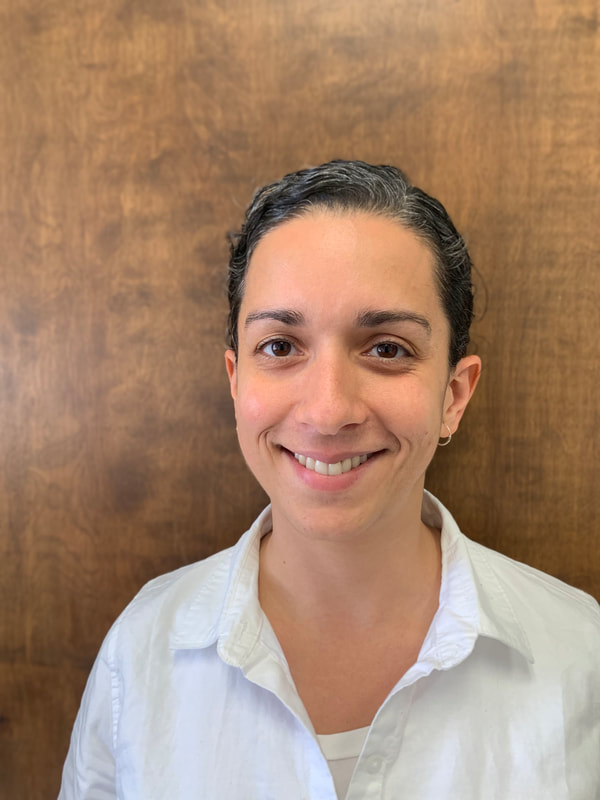
Yesenia Cabrera is a graduate student in the Neuroscience Interdepartmental PhD program (NSIDP). Her dissertation project is examining sleep-dependent brain activity in the establishment of maladaptive fear learning following a stressor. She is interested in using a multimodal approach, relying on electrophysiological techniques and other peripheral measures to identify neural activity patterns and key sleep features that contribute to memory consolidation deficits in males and naturally cycling female rats.
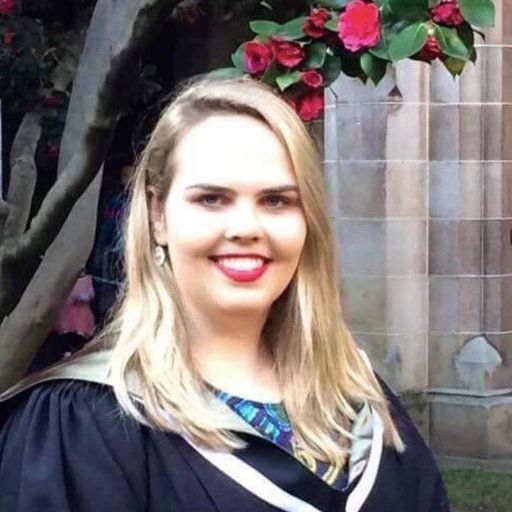
Sarah Thomas Broome is a PhD candidate in the Laboratory of Cellular and Molecular Neuroscience at University of Technology Sydney. Her research focuses on assessing the anti-inflammatory and neuroprotective effects of the anxiolytic Buspirone in cellular and animal models of Parkinson’s disease.
Spyridon Hasiakos, DMD, from the laboratory of Yousang Gwack, Ph.D.
Dr. Spyridon Hasiakos is a board-eligible endodontist actively training under the NIH K12 Post-Doctoral Fellowship in pursuit of a dentist-scientist career. Prior to arriving at UCLA, Dr. Hasiakos completed his undergraduate studies in his home-city of Chica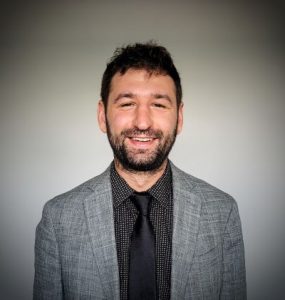 go, Illinois. After receiving a B.S. at Loyola University of Chicago, he earned his DMD degree at the University of Illinois-Chicago. Dr. Hasiakos developed a passion for clinically translational research during dental school, where he studied dentino-pulpal tissue regeneration under mentorship of Dr. Thomas Diekwisch and Dr. Xianghong Luan. Upon arriving to UCLA, Dr. Hasiakos completed his clinical residency training in endodontics at the School of Dentistry. He is now engaged in full-time scientific training, pursuing a PhD under guidance of Dr. Yousang Gwack in the Physiology Department at the David Geffen School of Medicine. In Gwack lab, Dr. Hasiakos studies calcium signaling via the ORAI family of proteins as a key regulatory mechanism in T-lymphocyte function. Specifically, his research focus is to better understand the molecular factors that drive pathogenicity of T cells in multiple sclerosis (MS). Dr. Hasiakos aims not only to expose translational therapeutic targets for these patients, but also elucidate mechanisms underlying the association between chronic inflammatory diseases in the oral cavity and other systemic inflammatory conditions.
go, Illinois. After receiving a B.S. at Loyola University of Chicago, he earned his DMD degree at the University of Illinois-Chicago. Dr. Hasiakos developed a passion for clinically translational research during dental school, where he studied dentino-pulpal tissue regeneration under mentorship of Dr. Thomas Diekwisch and Dr. Xianghong Luan. Upon arriving to UCLA, Dr. Hasiakos completed his clinical residency training in endodontics at the School of Dentistry. He is now engaged in full-time scientific training, pursuing a PhD under guidance of Dr. Yousang Gwack in the Physiology Department at the David Geffen School of Medicine. In Gwack lab, Dr. Hasiakos studies calcium signaling via the ORAI family of proteins as a key regulatory mechanism in T-lymphocyte function. Specifically, his research focus is to better understand the molecular factors that drive pathogenicity of T cells in multiple sclerosis (MS). Dr. Hasiakos aims not only to expose translational therapeutic targets for these patients, but also elucidate mechanisms underlying the association between chronic inflammatory diseases in the oral cavity and other systemic inflammatory conditions.
The Brain Research Institute (BRI) has developed a rich environment for scientific discovery and a foundation for advancing patient care. I aspire that my own research may importantly contribute to the mission of the BRI. My primary advisor, Dr. Gwack, is an internationally recognized investigator of immunology and the role of Ca2+ channel signaling in immune cells. Upon learning more about his work, I became interested in the translational potential of his lab’s expertise in a specific family of calcium channel proteins, ORAI. Due to their predominant role in T-cells, studying the differential functions of ORAI homologues in effector T-cell populations may enable highly specific therapeutic targeting for a variety of diseases including multiple sclerosis (MS). A major aspect of my PhD thesis research involves the use of novel conditional and global ORAI knock-out models to define their collective impact(s) on T-cells in neuronal inflammation. Bioinformatic approaches using RNA-sequencing technology will also be utilized throughout the project to reveal critical knowledge as it relates to the cellular mechanisms proposed to mediate pathogenesis in MS. Funding support via the BRI Knaub Fellowship is an indispensable opportunity that will facilitate the execution our present studies. Beyond these current objectives, the Knaub Fellowship will help nurture my own career development as a scientist. I believe that it is important to enhance intersection and communication between differing fields of medicine, clinical care, and academic research. I am very grateful to have been honored by this award and I look forward to the avenues that it will reveal both now and in the future to collaborate with other dental and medical scientists in effort to help our patients.
Publication List
Hasiakos, S et al. “Calcium Signaling in T Cells and Chronic Inflammatory Disorders of the Oral Cavity.” Journal of dental research, 22034521990652. 4 Feb. 2021, doi:10.1177/0022034521990652
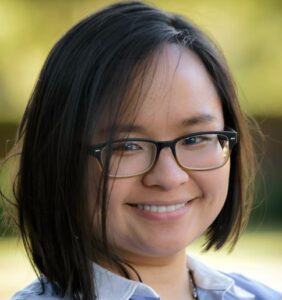 Bao Ying Chen, Ph.D., from the laboratory of Peter Clark, Ph.D.
Bao Ying Chen, Ph.D., from the laboratory of Peter Clark, Ph.D.
Bao Ying Chen is a PhD student in Dr. Peter Clark’s lab through the Physics and Biology in Medicine graduate program. She earned her BA degree in Biological Chemistry at Grinnell College where she developed a strong interest in doing biomedical research to help solve big problems in the world. Chen’s interest in understanding autoimmune diseases is what led to her path to becoming a graduate student at UCLA. On a broad scale, her research interests include neuroinflammation, immunometabolism, and Positron Emission Tomography (PET) imaging.
Chen’s research involves studying the use of PET imaging to facilitate drug discovery in autoimmune diseases. Previously, she has shown that 18F-FAC PET can be used to image brain-infiltrating leukocytes in the experimental autoimmune encephalomyelitis (EAE), mouse model of multiple sclerosis. 18F-FAC PET images deoxyribonucleoside salvage, a pathway that is upregulated in immune cells during disease. Whether deoxyribonucleoside salvage is a pathway with functional relevance in EAE remains to be determined. Having the BRI Knaub Fellowship has been helping to support the in vivo studies that will ultimately help us to unravel the biology behind the 18F-FAC PET imaging results in this disease.
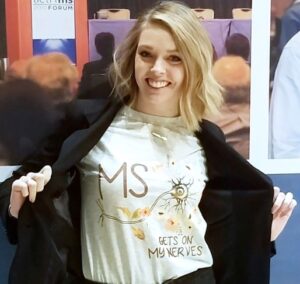 Lisa Golden, Ph.D., from the laboratory of Rhonda Voskuhl, M.D.
Lisa Golden, Ph.D., from the laboratory of Rhonda Voskuhl, M.D.
Lisa Golden is a PhD student in the Molecular Biology Institute. She received her BA in chemistry and BS in biochemistry at the University of Iowa before joining Dr. Rhonda Voskuhl’s lab at UCLA. She has a primary interest in pursuing research to understand the neurodegenerative mechanisms of multiple sclerosis.
Golden’s graduate research uses region-specific, cell-specific, and sex-specific approaches to understand the role of astrocytes in hippocampal neurodegeneration using the animal model for multiple sclerosis (MS), experimental autoimmune encephalomyelitis (EAE). These studies utilize the RiboTag technology to analyze the translatome of astrocytes during disease. The BRI Knaub Fellowship in Multiple Sclerosis Research will support these studies by providing the opportunity to conduct large RNA sequencing experiments to elucidate how astrocytes change in response to neuroinflammation, and to test the functionality of gene expression changes with knockdown and knockout models. Understanding how each individual cell type responds to neuroinflammatory responses provides deeper insight into the complex response of a brain region as a whole, opening new windows of opportunity for future treatments in MS.
 Lisa Golden, Ph.D., from the laboratory of Rhonda Voskuhl, M.D.
Lisa Golden, Ph.D., from the laboratory of Rhonda Voskuhl, M.D.
Lisa Golden is a PhD student in the Molecular Biology Institute. She received her BA in chemistry and BS in biochemistry at the University of Iowa before joining Dr. Rhonda Voskuhl’s lab at UCLA. She has a primary interest in pursuing research to understand the neurodegenerative mechanisms of multiple sclerosis.
Golden’s graduate research uses region-specific, cell-specific, and sex-specific approaches to understand the role of astrocytes in hippocampal neurodegeneration using the animal model for multiple sclerosis (MS), experimental autoimmune encephalomyelitis (EAE). These studies utilize the RiboTag technology to analyze the translatome of astrocytes during disease. The BRI Knaub Fellowship in Multiple Sclerosis Research will support these studies by providing the opportunity to conduct large RNA sequencing experiments to elucidate how astrocytes change in response to neuroinflammation, and to test the functionality of gene expression changes with knockdown and knockout models. Understanding how each individual cell type responds to neuroinflammatory responses provides deeper insight into the complex response of a brain region as a whole, opening new windows of opportunity for future treatments in MS.
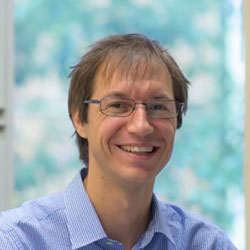 Stefano Lepore, Ph.D. from the laboratory of Allan Mackenzie-Graham, Ph.D.
Stefano Lepore, Ph.D. from the laboratory of Allan Mackenzie-Graham, Ph.D.
Stefano Lepore earned his Ph.D. at Charité – Universitätsmedizin Berlin, Berlin, Germany, before coming to UCLA to join Dr. Mackenzie-Graham’s lab in the Department of Neurology. He is fundamentally interested in neuroinflammation, neurodegeneration and their primary processes, and has a strong background in neuroscience and magnetic resonance imaging. These areas of expertise facilitate his studies on neurodegeneration in autoimmune neurological diseases, including multiple sclerosis (MS) and experimental autoimmune encephalomyelitis (EAE), an inflammatory demyelinating disease of the central nervous system commonly used as an animal model of MS.
Lepore’s research involves the analysis of white matter tracts using novel diffusion imaging techniques to evaluate axonal injury and axonal loss and to investigate the surrounding milieu changes during disease and following treatment. During an internship at the GlaxoSmithKline Medicine Research Center he carried out pharmacological MRI (phMRI) studies to identify circuits recruited by stress and their modulation by psychiatry drugs. As part of his doctoral training, Lepore’s research project focused on the use of magnetic resonance imaging to characterize the development of EAE especially during the pre-symptomatic period of the disease. A significant aspect of this work was the employment of a cryogenically-cooled RF coil to acquire micro MR imaging in vivo, with superior spatial resolution so as to be able to reveal brain pathology as microscopic changes in the brain parenchyma. Another doctoral project focused on the study of the dynamics of inflammatory cells between central nervous system and lymphatic system during development of EAE. Lepore studied the nature of immune cell infiltration during brain inflammation with a novel Fluorine/Proton (19F/1H) MR neuroimaging technique and application of fluorescently-tagged 19F nanoparticles.
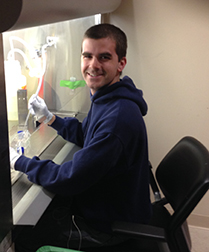 David DiTullio from the laboratory of S. Thomas Carmichael, M.D., Ph.D.
David DiTullio from the laboratory of S. Thomas Carmichael, M.D., Ph.D.
David DiTullio is an M.D./Ph.D student in the UCLA Medical Scientist Training Program where his research is characterized by an interdisciplinary approach to neuroscience research, examining both the molecular pathophysiology of neurological diseases as well as the functional effects of these pathologies.
DiTullio’s graduate thesis project employs techniques at all levels of neuroscience research, from molecular studies in vitro and in vivo to functional outcomes using electrophysiological field recordings, a technique that can be applied across domains within neuroscience. He plans to use the BRI Knaub Fellowship in Multiple Sclerosis Research specifically to support the in vivo studies, where the grant will facilitate a new depth of analyses by investigating gene overexpression in aged animals to better model the patient populations commonly affected by severe white matter disease; and to perform electron microscopy to more accurately quantify white matter injury and recovery after treatment. Building a comprehensive understanding of the repair process will ultimately be crucial to identify the most promising new treatments for MS patients in the lab and in the clinic.
Endowed Term Chairs
Among the principal forms of private support are endowed professorships or “chairs” and scholarships, which support the activities of distinguished members of the institute.
The BRI administers seven chairs and one scholarship:
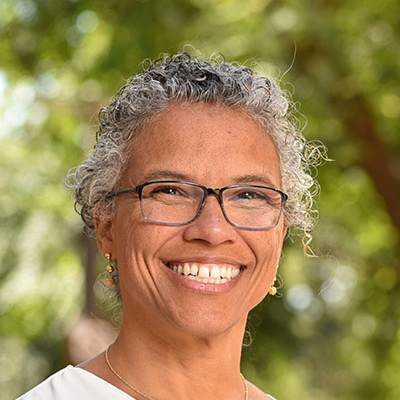
The Eleanor I. Leslie Term Chair in Innovative |

The Eleanor I. Leslie Term Chair in Pioneering |
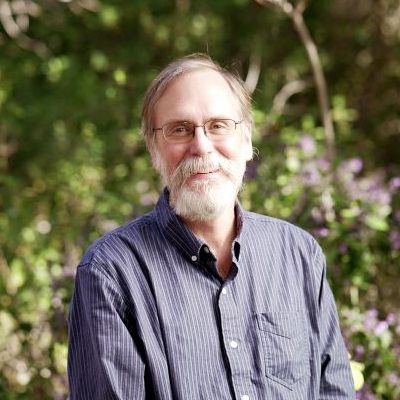
|
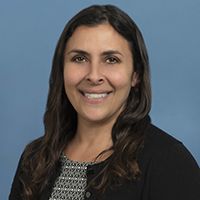
|

|
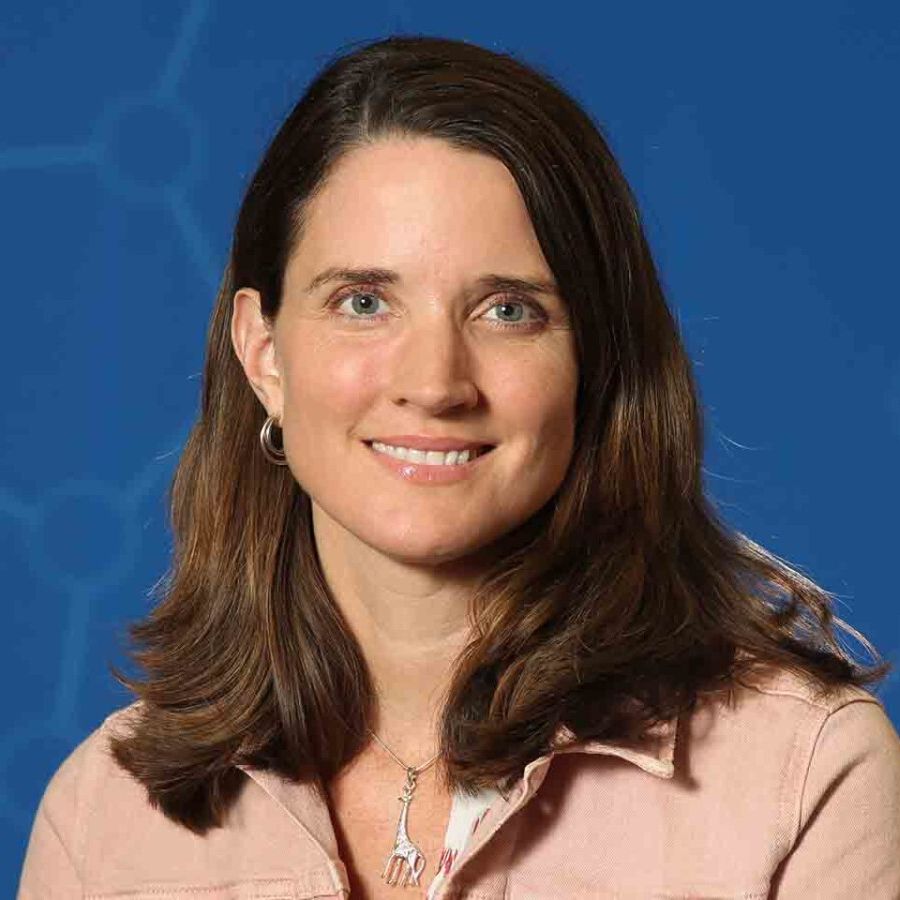
|

|

|
|
|
|
Training Grants
UCLA Bioscience Neuroscience Training Grants
To go to the NIH grants database RePORTER click here or on any of the grants listed below
UCLA Bioscience Training
To go to the NIH grants database RePORTER click here or on any of the grants listed below
Links and Resources
UCLA Health IT Resources
Funding Opportunities
For funding opportunities related to Neuroscience, please visit the following:
- UCLA Clinical and Translational Science Institute
- Society for Neuroscience
- UCLA Neurosciences Training Grants
For funding opportunities related to all areas of research, please visit:
Facilities & Programs
Gonda Conference Room Reservations:
UCLA Neuroscience Research Centers
- Brain Mapping Center
- Center for Sleep Research
- Intellectual and Developmental Disabilities Research Center (IDDRC)
- Neuromodulation Division at the UCLA Semel Institute
UCLA Clinical Research Programs
- Alzheimer’s Disease Center
- Anxiety Disorders Program
- Clinical Trials
- Integrated Substance Abuse Programs
- Jules Stein Eye Institute
- Stroke Center
UCLA Campus
- UCLA Home Page
- UCLA Research Home Page
- UCLA Clinical Referrals
- UCLA David Geffen School of Medicine
- UCLA David Geffen School of Medicine Research Home Page
- UCLA Semel Institute
- UCLA Neuroscience Graduate Programs
- UCLA STAR (Specialty Training and Advanced Research) Program
Neuroscience Web Sites
- Society For Neuroscience
- Sites for Information on Brain Diseases and Disorders (Dana Foundation)
- Educational Tools- “Explore the Brain and Spinal Cord”
- Brainfacts.org
- Knowing Neurons.com
Governmental Agencies
- National Institutes of Health (NIH)
- ClinicalTrials.gov
- National Institute of Neurological Disorders and Stroke (NINDS)
- National Library of Medicine (NLM)
- National Science Foundation (NSF)
- Defense Advanced Research Project Agency (DARPA)



